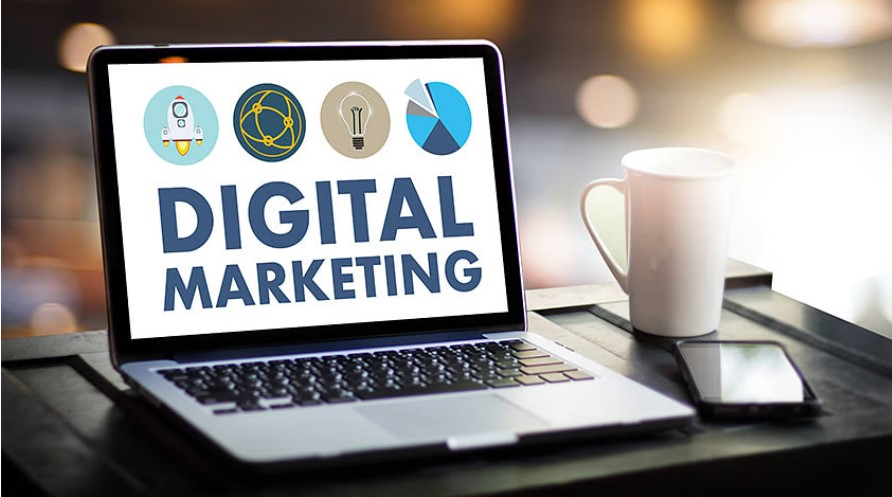Choosing the right digital marketing strategy for your business can be overwhelming, especially with the array of options available. From search engine optimization (SEO) and social media marketing to pay-per-click (PPC) advertising and email marketing, each strategy offers unique advantages. The key is to select the strategies that align with your business goals, target audience, and resources. In this guide, we’ll explore a few of the most effective digital marketing strategies to help you determine which one is the best fit for your business.
1. Search Engine Optimization (SEO)
SEO is the process of optimizing your website to rank higher in search engine results pages (SERPs) organically. It’s an essential long-term strategy for driving traffic to your website without paying for ads. SEO involves keyword research, creating high-quality content, optimizing meta tags, and improving your site’s structure to enhance its visibility.
Is it right for your business?
- Pros: SEO is great for businesses that want to build long-term organic traffic. It’s particularly effective for companies in competitive industries where paid advertising can be expensive.
- Cons: SEO takes time to show results, so it’s not ideal if you need quick wins.
If your business thrives on organic search traffic and you’re willing to invest in the long game, SEO could be your best option.
2. Pay-Per-Click (PPC) Advertising
PPC advertising, like Google Ads or Bing Ads, involves paying for ads that appear at the top of search engine results or on other platforms like social media. With PPC, you only pay when someone clicks on your ad, making it a cost-effective way to drive targeted traffic to your site.
Is it right for your business?
- Pros: PPC offers immediate visibility and can drive traffic quickly. It’s ideal for businesses looking to boost conversions quickly, promote time-sensitive offers, or target specific demographics.
- Cons: PPC can get expensive, especially if you’re in a competitive market with high cost-per-click (CPC) rates.
If you have a budget for advertising and want fast, measurable results, PPC can be a powerful tool to increase traffic and sales.
3. Social Media Marketing
Social media marketing involves promoting your business on platforms like Facebook, Instagram, Twitter, LinkedIn, and TikTok. It’s a great way to build brand awareness, engage with customers, and drive traffic to your website. You can choose between organic social media posts or paid social ads.
Is it right for your business?
- Pros: Social media is great for building relationships with your audience and fostering a community around your brand. It’s perfect for businesses that rely on visual content or that have a strong, interactive presence.
- Cons: Building an organic following takes time, and paid social media ads can be hit or miss if not targeted properly.
If your audience is active on social media, and you have the resources to create engaging content, this strategy can help you build a loyal customer base.
4. Email Marketing
Email marketing remains one of the most effective ways to communicate directly with your audience. By sending targeted emails to your subscribers, you can nurture leads, promote products, and offer valuable content. The key is to segment your email list and personalize your messages for maximum impact.
Is it right for your business?
- Pros: Email marketing is cost-effective and highly targeted. It’s excellent for nurturing existing leads and keeping your customers engaged.
- Cons: It requires a well-maintained email list, and if your emails aren’t engaging, they can end up in spam folders or get ignored.
If you already have an email list or plan to build one, email marketing is a great tool for keeping your audience engaged and converting leads into sales.
5. Content Marketing
Content marketing focuses on creating and sharing valuable content (blog posts, videos, infographics, etc.) to attract and engage your target audience. This strategy is particularly effective for educating customers and building trust in your brand.
Is it right for your business?
- Pros: Content marketing helps establish your business as an authority in your industry. It’s a long-term strategy that works well in conjunction with SEO.
- Cons: Creating high-quality content consistently can be time-consuming and requires creativity and expertise.
If your business relies on providing value to customers through education or storytelling, content marketing is an essential strategy.
Conclusion
There’s no one-size-fits-all digital marketing strategy. The best approach depends on your business goals, audience, and budget. If you’re looking for immediate traffic, PPC might be your best bet. For long-term growth, SEO and content marketing can help build a sustainable presence online. Social media marketing is ideal for building brand awareness, and email marketing is great for keeping customers engaged. By aligning your strategies with your business needs, you can effectively reach your audience and drive success.

1 Comment
At sapiente est non fuga cumque Et enim eius. Sed enim aspernatur magni at consequatur voluptatem. Consequuntur praesentium quo aut Voluptate ut enim deserunt dolores nesciunt. Qui sint quis Sed quis illum illum. Aut aut omnis qui ipsum impedit consequatur Excepturi nemo adipisci sit sint eligendi. Aut ab eos at Dolorem dolores officiis ut sed. Commodi repellendus tempore incidunt commodi illum. rem ipsum nam harum culpa Ut et qui non Neque dolore dolores Autem non deserunt ullam rem officiis Ipsum earum quod veniam deserunt pariatur. Qui sint deleniti itaque.